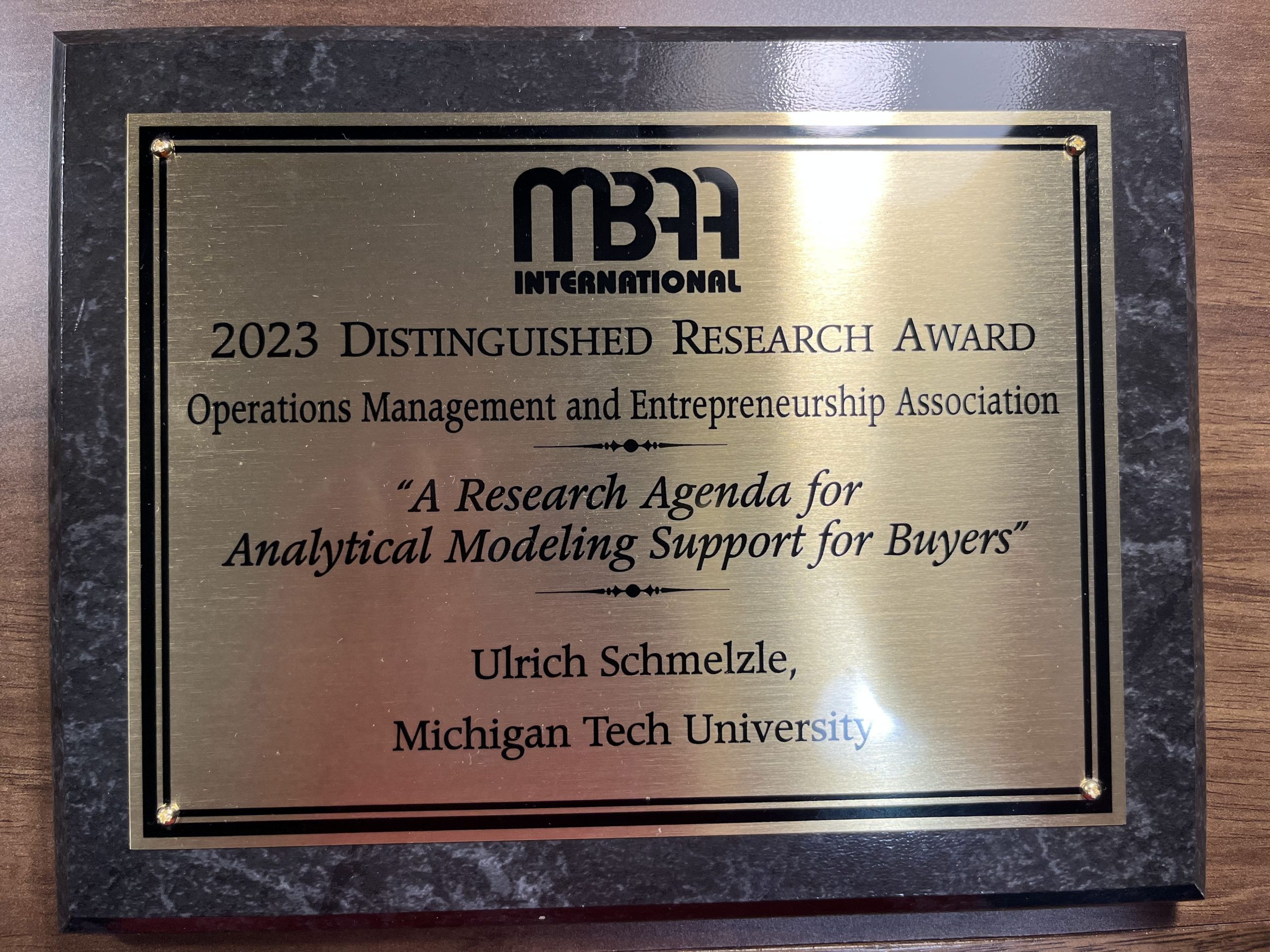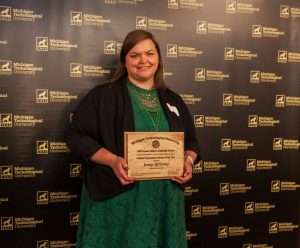
by College of Business
Assistant Professors Laura Connolly and Jenny Apriesnig (both COB) and Research Engineer Travis White (GLRC) have completed an analysis of the economic impacts associated with the City of Menominee’s project to deepen the Menominee Harbor.
The economic impact analysis was part of a feasibility study conducted by the city in partnership with the U.S. Army Corps of Engineers. The city contracted with the MTU team to complete the analysis, which was delivered to Menominee officials March 15.
In their final economic evaluation, Connolly, Apriesnig and White provided a brief overview of the Menominee Harbor and the local economic context, then estimated the economic impacts associated with the deepening project for both the Upper Peninsula and northeast Wisconsin, focusing on employment, output and tax revenue.
Across the scenarios considered, the trio found that the majority of the project’s economic impacts are concentrated in northeast Wisconsin, with more modest impacts in the U.P. They highlighted the potential economic gains in the local area if the Menominee Harbor is deepened and the “significant potential losses if the status quo is maintained.”
“The COB faculty have developed a reputation for economic impact studies,” said Dean Johnson, dean of the College of Business. “One of the COB’s goals is making a positive societal impact via our thought leadership. In the last two years, our faculty research expertise has supported the regional economy across the mining, transportation, entrepreneurship and educational sectors.”
Prior to this project, COB faculty completed an economic impact analysis of the Eagle Mine in the U.P. Lundin Mining, the operator of the only primary nickel mine in the U.S., sought out the unique combination of COB faculty expertise in economics, mining, econometrics, data analytics and information systems to establish best practices in mining in relation to regional economic health.





